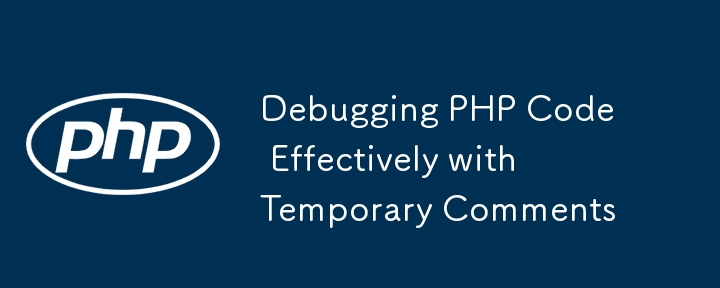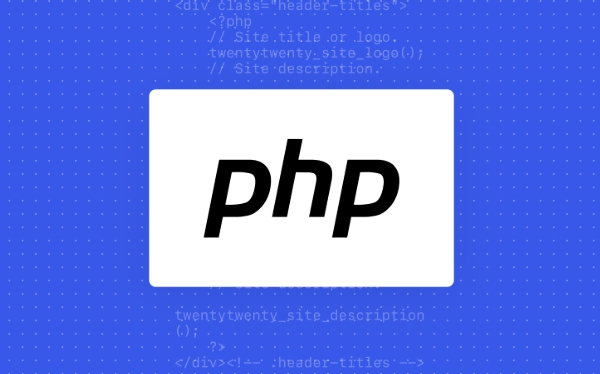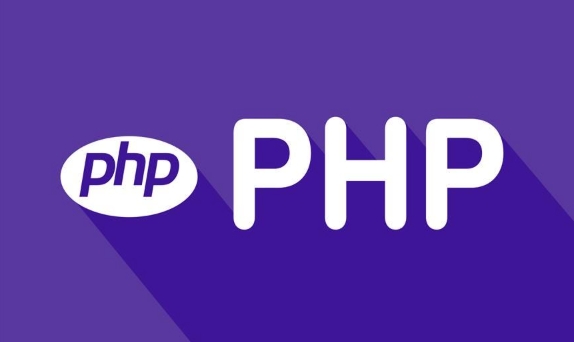Debugging PHP Code Effectively with Temporary Comments
Jul 16, 2025 am 02:54 AMTroubleshooting PHP code problems with temporary annotations is an efficient way, especially when debugging tools are lacking. 1. Reduce the scope of the problem by commenting large segments of logic, and gradually relax the observation of behavior changes; 2. Comment the subsequent interfering code, focus on testing variable values, and avoid being affected by redundant logic; 3. Use comments instead to delete function calls, retain structure and test process changes, such as replacing conditions to be determined as fixed values; 4. Pay attention to avoid dependency errors caused by nesting multi-layer comments, be careful to annotate database operations, and manage changes with the help of version control tools. Mastering these techniques can significantly improve debugging efficiency.

Sometimes the most direct way to debug PHP code is the most "primitive": use temporary comments to block some code. Although it sounds simple, it is very practical when actually troubleshooting problems, especially if there is no debugger or environment restriction.

Identify the scope of the problem: from the whole to the local
The first step in debugging is to narrow down the scope of the problem. You can first wrap the large segments of logic blocks with /* */ annotations, gradually release them, and observe changes in program behavior. for example:
/* some_code_here(); another_function_call(); */
This can quickly determine whether the problem lies in this code. Especially when the error message is vague or there is no output at all, this method can help you quickly locate the approximate position.

- First comment out the second half of the entire process to see if the first half is executed normally.
- Then un-annotate the comments step by step until the problem reappears.
Precision test variable values: Don't rush var_dump
Many people start var_dump() or print_r() , but it is more effective to comment out subsequent codes that may interfere. For example, if you suspect that a variable has passed the wrong value, but there is still a lot of logic that depends on it later. You might as well comment out the subsequent part first and test the previous data source separately.
For example:

$result = get_data_from_api(); // process_result($result); echo '<pre class="brush:php;toolbar:false">'; var_dump($result); echo '';
This way you can focus on viewing the real content of $result instead of being interfered with by subsequent processing. After confirming that the data is fine, restore the comments.
Quickly exclude function effects: Comments instead of deletion
Sometimes the problem may come from a function call, but you are not sure what it does in the entire process. Don't rush to delete the code at this time, as it is safer and more convenient to wrap it with comments.
// $user = fetch_user_profile($id);
This can preserve the original structure and avoid syntax errors. It can also test and remove the behavior changes of the program after the call. If the problem disappears, you can basically confirm that it is the problem with this function.
If it is a function call in the conditional judgment, it can also be temporarily replaced with a fixed value:
// if (check_user_access($user)) { if (true) {This can bypass complex processes such as permission checking and quickly verify whether there is any problem with the main logic.
Pay attention to details: Don't let comments cause new problems
While temporary comments are a good idea, there are some details that are easy to ignore:
- Multi-layer comment nesting can cause syntax errors (PHP does not support it), so try to use
//instead of/* */to comment single lines. - Be careful when commenting out database operations or file writing, as it may cause subsequent code reliance on these operations to occur.
- If you are using version control tools (such as Git), you can easily restore the commented code after debugging is completed, and don't worry about forgetting to restore it.
Basically that's it. It seems simple, but it can really save you a lot of time if you use it well.
The above is the detailed content of Debugging PHP Code Effectively with Temporary Comments. For more information, please follow other related articles on the PHP Chinese website!
- Multi-layer comment nesting can cause syntax errors (PHP does not support it), so try to use

Hot AI Tools

Undress AI Tool
Undress images for free

Undresser.AI Undress
AI-powered app for creating realistic nude photos

AI Clothes Remover
Online AI tool for removing clothes from photos.

Clothoff.io
AI clothes remover

Video Face Swap
Swap faces in any video effortlessly with our completely free AI face swap tool!

Hot Article

Hot Tools

Notepad++7.3.1
Easy-to-use and free code editor

SublimeText3 Chinese version
Chinese version, very easy to use

Zend Studio 13.0.1
Powerful PHP integrated development environment

Dreamweaver CS6
Visual web development tools

SublimeText3 Mac version
God-level code editing software (SublimeText3)

Hot Topics
 How to use PHP to build social sharing functions PHP sharing interface integration practice
Jul 25, 2025 pm 08:51 PM
How to use PHP to build social sharing functions PHP sharing interface integration practice
Jul 25, 2025 pm 08:51 PM
The core method of building social sharing functions in PHP is to dynamically generate sharing links that meet the requirements of each platform. 1. First get the current page or specified URL and article information; 2. Use urlencode to encode the parameters; 3. Splice and generate sharing links according to the protocols of each platform; 4. Display links on the front end for users to click and share; 5. Dynamically generate OG tags on the page to optimize sharing content display; 6. Be sure to escape user input to prevent XSS attacks. This method does not require complex authentication, has low maintenance costs, and is suitable for most content sharing needs.
 How to use PHP combined with AI to achieve text error correction PHP syntax detection and optimization
Jul 25, 2025 pm 08:57 PM
How to use PHP combined with AI to achieve text error correction PHP syntax detection and optimization
Jul 25, 2025 pm 08:57 PM
To realize text error correction and syntax optimization with AI, you need to follow the following steps: 1. Select a suitable AI model or API, such as Baidu, Tencent API or open source NLP library; 2. Call the API through PHP's curl or Guzzle and process the return results; 3. Display error correction information in the application and allow users to choose whether to adopt it; 4. Use php-l and PHP_CodeSniffer for syntax detection and code optimization; 5. Continuously collect feedback and update the model or rules to improve the effect. When choosing AIAPI, focus on evaluating accuracy, response speed, price and support for PHP. Code optimization should follow PSR specifications, use cache reasonably, avoid circular queries, review code regularly, and use X
 PHP creates a blog comment system to monetize PHP comment review and anti-brush strategy
Jul 25, 2025 pm 08:27 PM
PHP creates a blog comment system to monetize PHP comment review and anti-brush strategy
Jul 25, 2025 pm 08:27 PM
1. Maximizing the commercial value of the comment system requires combining native advertising precise delivery, user paid value-added services (such as uploading pictures, top-up comments), influence incentive mechanism based on comment quality, and compliance anonymous data insight monetization; 2. The audit strategy should adopt a combination of pre-audit dynamic keyword filtering and user reporting mechanisms, supplemented by comment quality rating to achieve content hierarchical exposure; 3. Anti-brushing requires the construction of multi-layer defense: reCAPTCHAv3 sensorless verification, Honeypot honeypot field recognition robot, IP and timestamp frequency limit prevents watering, and content pattern recognition marks suspicious comments, and continuously iterate to deal with attacks.
 PHP calls AI intelligent voice assistant PHP voice interaction system construction
Jul 25, 2025 pm 08:45 PM
PHP calls AI intelligent voice assistant PHP voice interaction system construction
Jul 25, 2025 pm 08:45 PM
User voice input is captured and sent to the PHP backend through the MediaRecorder API of the front-end JavaScript; 2. PHP saves the audio as a temporary file and calls STTAPI (such as Google or Baidu voice recognition) to convert it into text; 3. PHP sends the text to an AI service (such as OpenAIGPT) to obtain intelligent reply; 4. PHP then calls TTSAPI (such as Baidu or Google voice synthesis) to convert the reply to a voice file; 5. PHP streams the voice file back to the front-end to play, completing interaction. The entire process is dominated by PHP to ensure seamless connection between all links.
 How to use PHP to combine AI to generate image. PHP automatically generates art works
Jul 25, 2025 pm 07:21 PM
How to use PHP to combine AI to generate image. PHP automatically generates art works
Jul 25, 2025 pm 07:21 PM
PHP does not directly perform AI image processing, but integrates through APIs, because it is good at web development rather than computing-intensive tasks. API integration can achieve professional division of labor, reduce costs, and improve efficiency; 2. Integrating key technologies include using Guzzle or cURL to send HTTP requests, JSON data encoding and decoding, API key security authentication, asynchronous queue processing time-consuming tasks, robust error handling and retry mechanism, image storage and display; 3. Common challenges include API cost out of control, uncontrollable generation results, poor user experience, security risks and difficult data management. The response strategies are setting user quotas and caches, providing propt guidance and multi-picture selection, asynchronous notifications and progress prompts, key environment variable storage and content audit, and cloud storage.
 PHP realizes commodity inventory management and monetization PHP inventory synchronization and alarm mechanism
Jul 25, 2025 pm 08:30 PM
PHP realizes commodity inventory management and monetization PHP inventory synchronization and alarm mechanism
Jul 25, 2025 pm 08:30 PM
PHP ensures inventory deduction atomicity through database transactions and FORUPDATE row locks to prevent high concurrent overselling; 2. Multi-platform inventory consistency depends on centralized management and event-driven synchronization, combining API/Webhook notifications and message queues to ensure reliable data transmission; 3. The alarm mechanism should set low inventory, zero/negative inventory, unsalable sales, replenishment cycles and abnormal fluctuations strategies in different scenarios, and select DingTalk, SMS or Email Responsible Persons according to the urgency, and the alarm information must be complete and clear to achieve business adaptation and rapid response.
 Beyond the LAMP Stack: PHP's Role in Modern Enterprise Architecture
Jul 27, 2025 am 04:31 AM
Beyond the LAMP Stack: PHP's Role in Modern Enterprise Architecture
Jul 27, 2025 am 04:31 AM
PHPisstillrelevantinmodernenterpriseenvironments.1.ModernPHP(7.xand8.x)offersperformancegains,stricttyping,JITcompilation,andmodernsyntax,makingitsuitableforlarge-scaleapplications.2.PHPintegrateseffectivelyinhybridarchitectures,servingasanAPIgateway
 PHP integrated AI speech recognition and translator PHP meeting record automatic generation solution
Jul 25, 2025 pm 07:06 PM
PHP integrated AI speech recognition and translator PHP meeting record automatic generation solution
Jul 25, 2025 pm 07:06 PM
Select the appropriate AI voice recognition service and integrate PHPSDK; 2. Use PHP to call ffmpeg to convert recordings into API-required formats (such as wav); 3. Upload files to cloud storage and call API asynchronous recognition; 4. Analyze JSON results and organize text using NLP technology; 5. Generate Word or Markdown documents to complete the automation of meeting records. The entire process needs to ensure data encryption, access control and compliance to ensure privacy and security.






